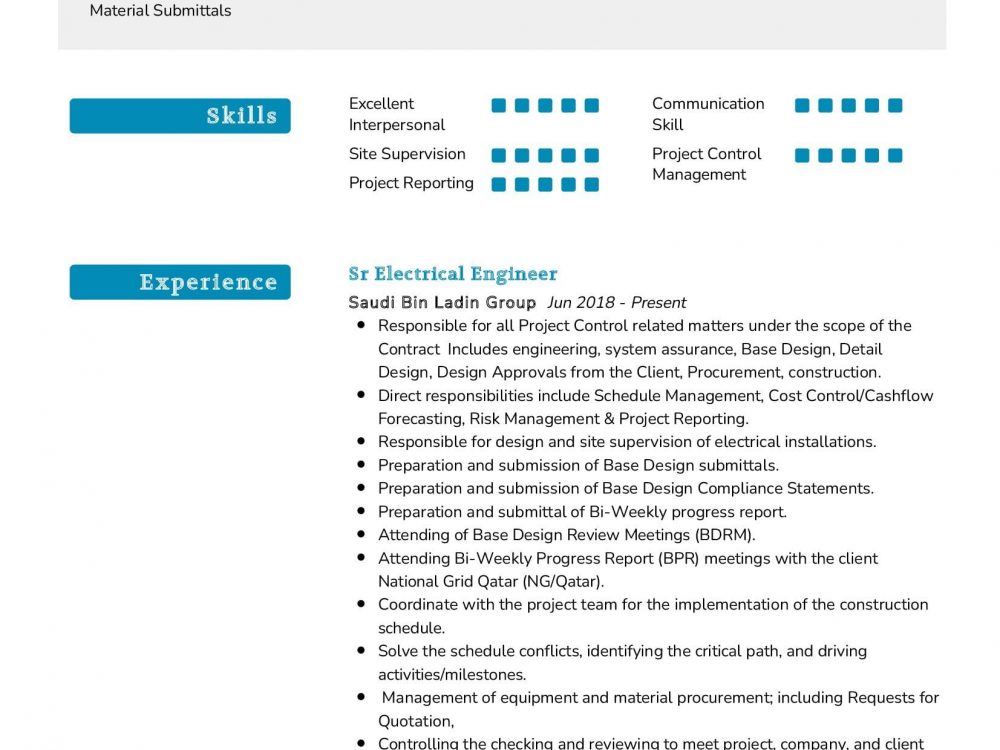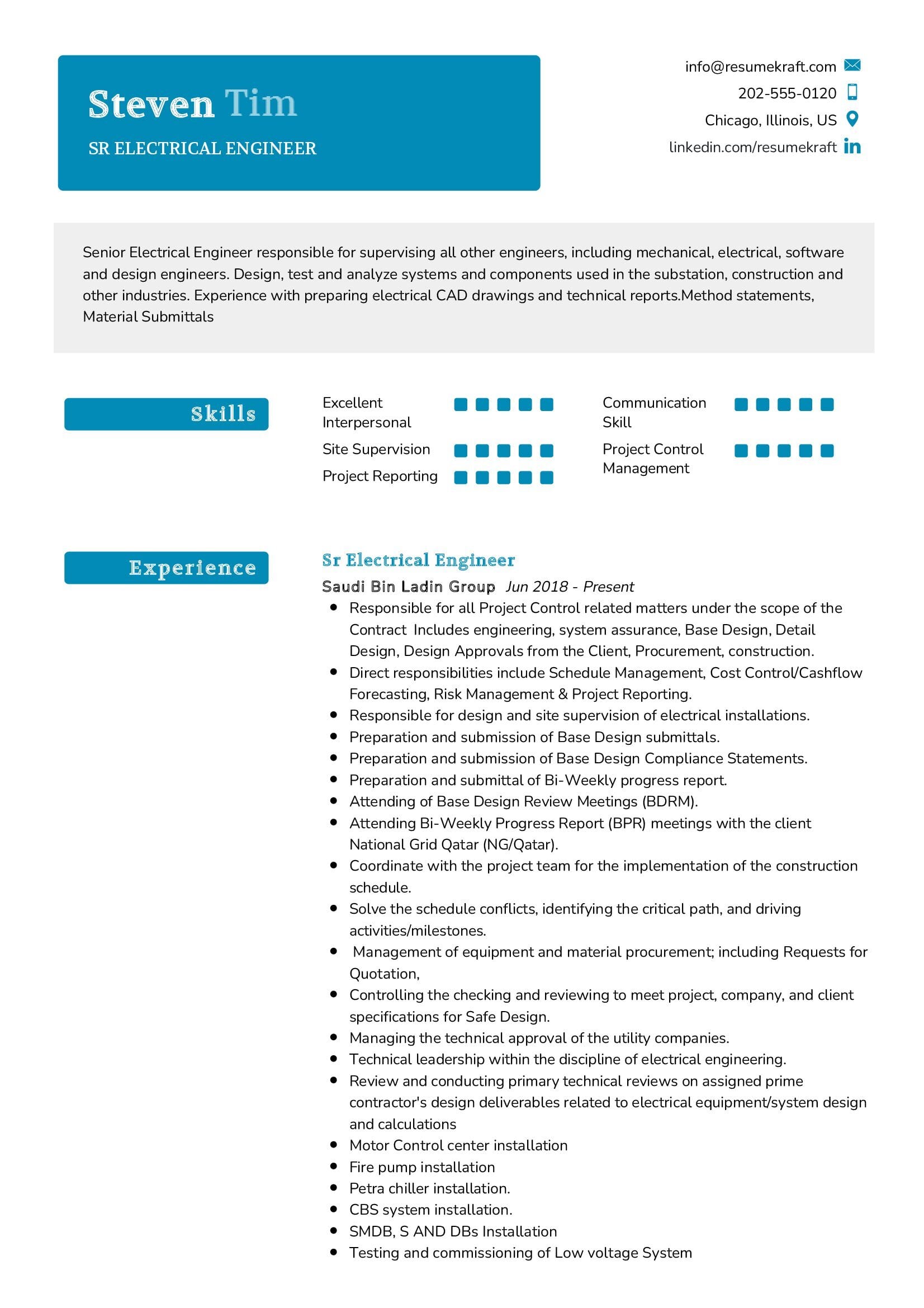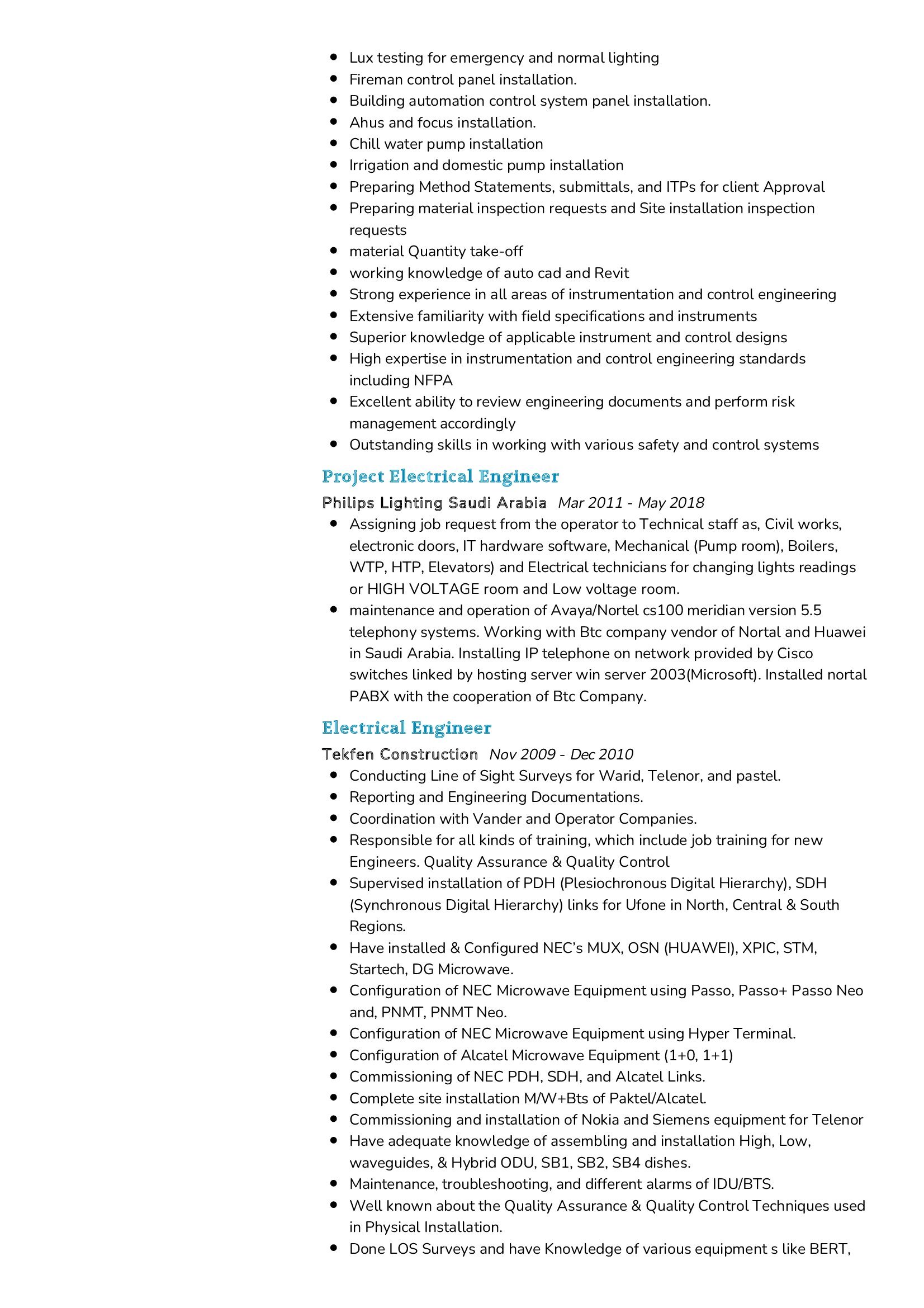Exploring the Role of a Senior Electrical Engineer
As technology continues to advance, the role of a Senior Electrical Engineer becomes increasingly crucial in today’s dynamic engineering landscape. This position demands a unique blend of technical prowess and leadership skills, steering engineering teams towards success. Let’s delve into the multifaceted role of a Senior Electrical Engineer, a position that requires a deep understanding of electrical engineering principles coupled with effective team management.
Key Responsibilities of a Senior Electrical Engineer
A Senior Electrical Engineer is at the forefront of designing, developing, and overseeing electrical systems and projects. Their role extends beyond technical expertise, incorporating leadership and strategic planning. Let’s explore the key responsibilities that define this role:
- Leading electrical engineering teams in the design and implementation of complex projects, ensuring they meet quality and safety standards.
- Overseeing the development of electrical systems, from concept to completion, ensuring efficiency and adherence to project timelines.
- Collaborating with cross-functional teams, including mechanical engineers and project managers, to integrate electrical components seamlessly into larger projects.
- Conducting thorough analyses of electrical systems, identifying areas for improvement, and implementing innovative solutions.
- Mentoring and guiding junior engineers, fostering a culture of continuous learning and professional development.
- Ensuring compliance with industry standards, codes, and regulations in all electrical engineering projects.
- Staying abreast of the latest technological advancements in electrical engineering and implementing best practices in the field.
Each responsibility adds a layer of complexity to the role, making it both challenging and rewarding for seasoned electrical engineers.
Qualifications and Skills Required for a Senior Electrical Engineer
Becoming a Senior Electrical Engineer requires a combination of education, experience, and specific skills. Let’s break down the qualifications and skills that make a candidate stand out in this role:
- A Bachelor’s or Master’s degree in Electrical Engineering, showcasing a strong foundation in the field.
- Proven experience in leading electrical engineering projects, demonstrating a trajectory of increasing responsibility.
- Expertise in using industry-standard electrical design software and tools.
- Strong problem-solving skills, with the ability to analyze complex electrical systems and propose effective solutions.
- Excellent communication and interpersonal skills, essential for collaborating with diverse teams and conveying technical information clearly.
- Leadership and project management skills, honed through experiences and possibly through relevant certifications.
- Adaptability and resilience, crucial traits in navigating the evolving landscape of electrical engineering.
Securing additional certifications in specialized areas of electrical engineering can enhance a candidate’s profile and competitiveness in the job market.
Crafting a Standout Senior Electrical Engineer Resume
When crafting a resume for the role of a Senior Electrical Engineer, it’s crucial to highlight both technical expertise and leadership experience. Here are some tips to create an impactful resume:
- Showcase leadership roles, emphasizing instances where you led teams to successful project completion.
- Detail specific projects you’ve spearheaded, outlining the impact they had on the organization’s electrical systems.
- Quantify your achievements, using metrics to highlight the success of your projects and improvements in efficiency.
- List relevant certifications and continued education, demonstrating your commitment to staying current in the field.
- Customize your resume for each application, aligning your skills and experiences with the specific job requirements.
Each tip contributes to creating a resume that not only showcases your technical prowess but also your leadership capabilities.
Senior Electrical Engineer Resume Summary Examples
Your resume summary is the opening statement of your career story, setting the stage for what follows. Craft a compelling summary that encapsulates your experiences, skills, and the value you bring as a Senior Electrical Engineer:
- “Results-driven Senior Electrical Engineer with over a decade of experience, leading teams to successful project completion and implementing innovative solutions.”
- “Seasoned Senior Electrical Engineer specializing in complex system designs, known for optimizing efficiency and ensuring compliance with industry standards.”
- “Experienced leader in electrical engineering, with a proven track record of delivering high-quality projects on time and within budget.”
Each summary serves as a window into your career, offering a glimpse of your journey, strengths, and vision as a Senior Electrical Engineer.
Building a Robust Experience Section for Your Senior Electrical Engineer Resume
Your experience section is the heart of your resume, narrating your career story and highlighting milestones. Here are examples to guide you in crafting a strong experience section:
- “Led a team of electrical engineers in a critical infrastructure project, achieving a 15% improvement in overall system efficiency.”
- “Implemented cutting-edge electrical systems for [Company Name], resulting in a 25% reduction in project completion time.”
- “Mentored junior engineers, fostering a culture of continuous learning and development within the electrical engineering team.”
Each experience is a chapter in your career book, telling stories of challenges conquered, solutions found, and successes celebrated.
Educational Background for a Senior Electrical Engineer
Your educational journey is the foundation of your expertise. Showcase your educational milestones in the following format:
- Master of Science in Electrical Engineering, XYZ University, a journey of deep learning and specialization, 2010.
- Bachelor of Science in Electrical Engineering, ABC University, the foundation stone of your engineering career, 2008.
- Professional Engineer (PE) License, a recognition of your expertise in the field, obtained in 2012.
Each educational qualification is a building block, leading you to the pinnacle of success in your career.
Key Skills for a Senior Electrical Engineer
Your skill set is your toolbox, equipped with a diverse range of tools you’ve honed over the years. Here are essential skills for a Senior Electrical Engineer:
Soft Skills:
- Leadership and team management, guiding teams towards project success.
- Communication and interpersonal skills, conveying technical information clearly and building strong relationships.
- Problem-solving abilities, finding effective solutions in challenging electrical engineering scenarios.
- Attention to detail, ensuring precision in designing and implementing electrical systems.
- Adaptability and resilience, navigating the evolving landscape of electrical engineering.
Hard Skills:
- Expertise in electrical design software, such as AutoCAD and EAGLE.
- Knowledge of electrical codes and standards, ensuring compliance in all projects.
- Project management, overseeing projects from inception to successful completion.
- Experience with power distribution systems and control systems design.
- Familiarity with emerging technologies in electrical engineering.
Each skill is a tool, aiding you in providing exceptional electrical engineering solutions and leading your team effectively.
Common Mistakes to Avoid in a Senior Electrical Engineer Resume
As you craft your resume, steer clear of common pitfalls that can hinder your journey to landing your dream job. Here are mistakes to avoid and tips on how to do so:
- Avoid using a generic resume; tailor it for each application to showcase your unique fit for the role.
- Highlight achievements, not just job duties, to provide depth to your narrative.
- Don’t underestimate the importance of a cover letter; use it to tell your story and connect with potential employers.
- Balance technical language; avoid overloading your resume with jargon that might obscure your true value.
- Always proofread your resume to present a polished and professional image.
Each mistake is a potential stumbling block; avoid them to craft a resume that is both authentic and compelling.
Key Takeaways for Your Senior Electrical Engineer Resume
As we conclude this comprehensive guide, let’s recap the key points to keep in mind while crafting your Senior Electrical Engineer resume:
- Emphasize your leadership journey, showcasing milestones achieved and teams led in your experience section.
- Highlight your technical proficiency, showcasing expertise in electrical design software, project management, and adherence to standards.
- Detail the strategic initiatives you’ve spearheaded, showcasing your visionary approach to electrical engineering projects.
- Include a section on continuous learning, showcasing any certifications or courses you’ve undertaken to stay current in the field.
Finally, feel free to utilize resources like AI Resume Builder, Resume Design, Resume Samples, Resume Examples, Resume Skills, Resume Help, Resume Synonyms, and Job Responsibilities to create a standout application and prepare for the Senior Electrical Engineer job interview questions.
Armed with these insights and tips, you are now ready to craft a resume that is a true reflection of your journey, your skills, and your aspirations. Remember, your resume is not just a document; it is a canvas where you paint your career story, a story of growth, learning, and leadership. Best of luck!



